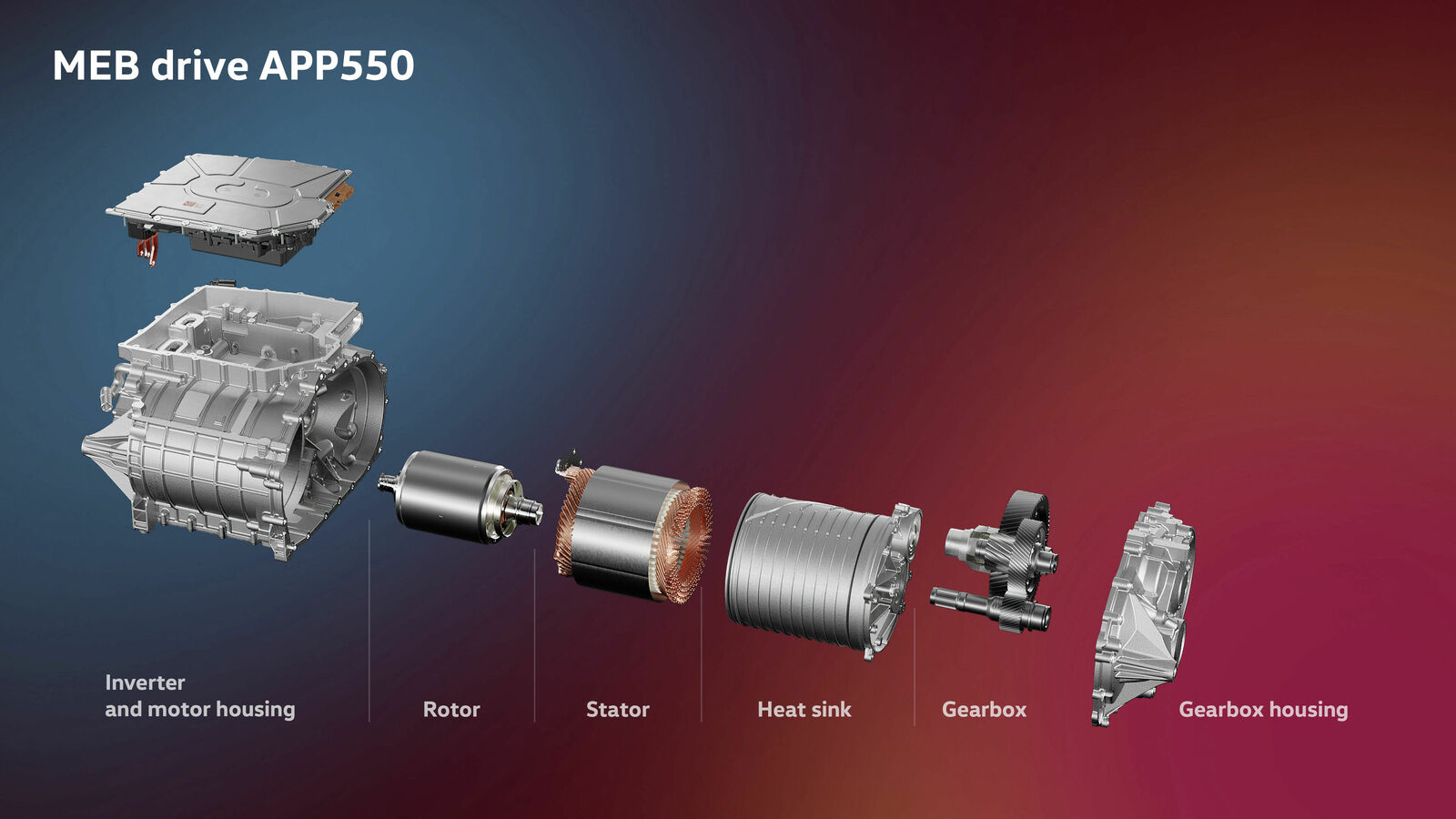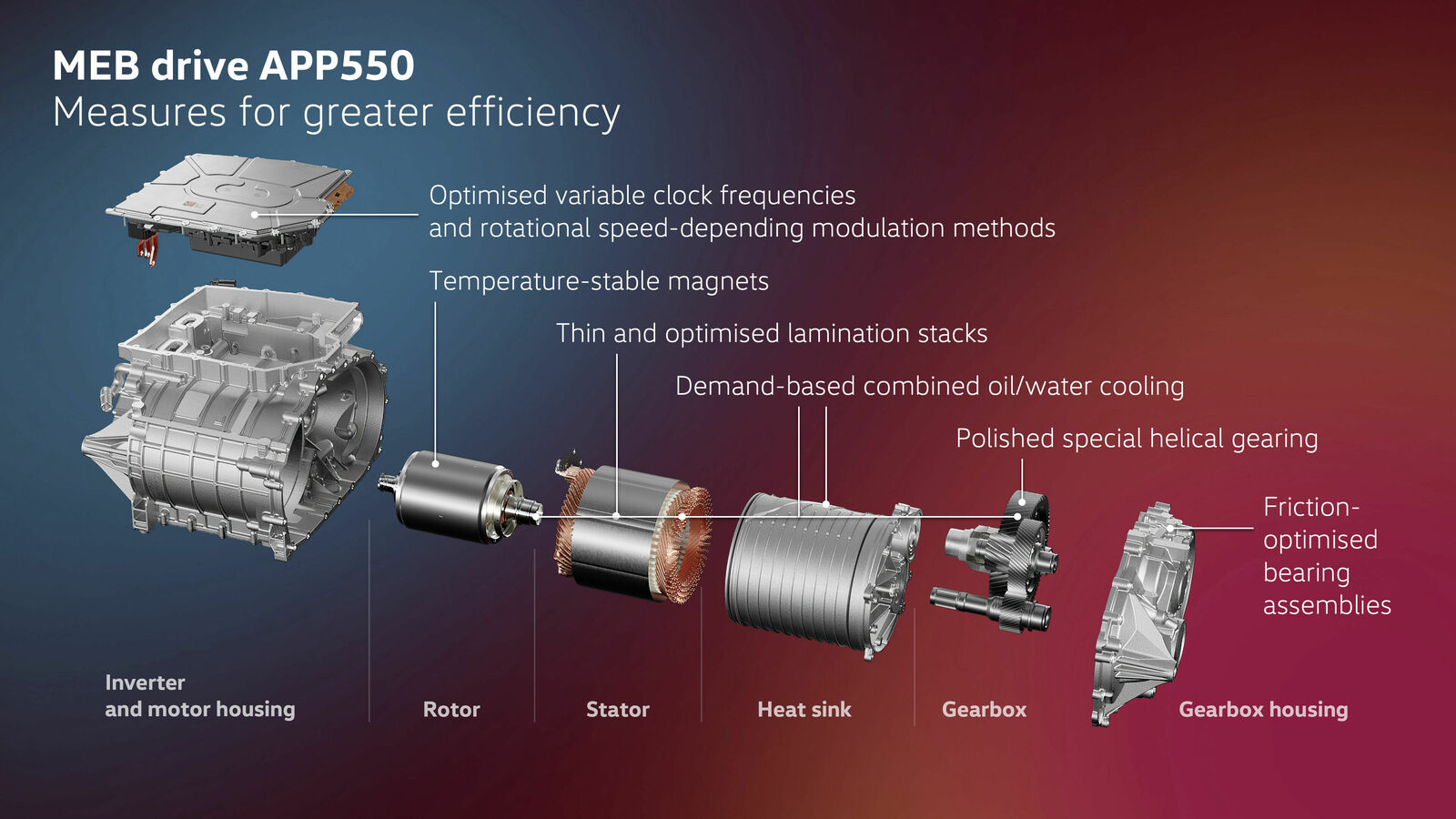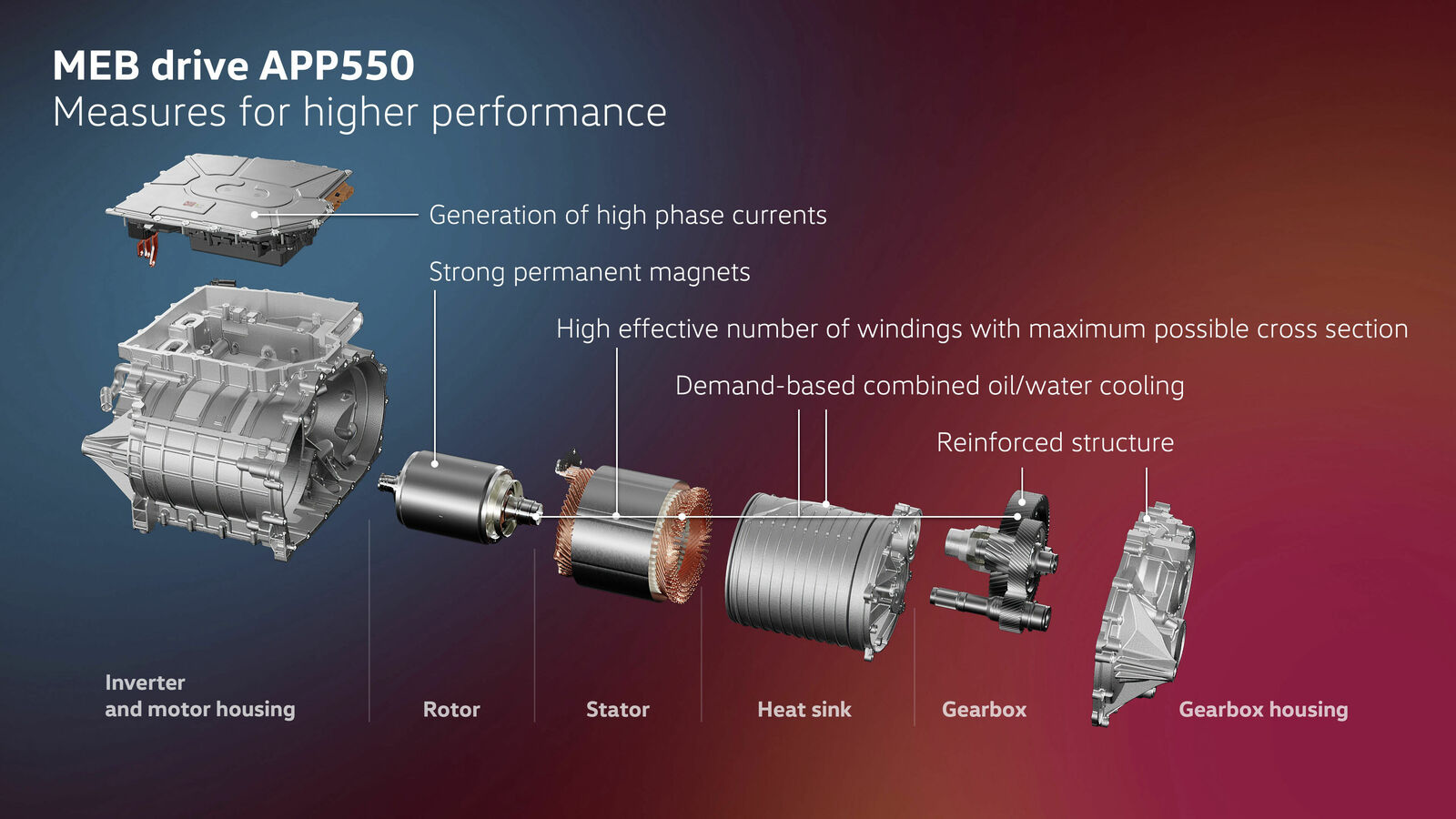- Significantly more power and torque
- ID. models can benefit from longer ranges
- Volkswagen will introduce the new drive in the fourth quarter of 2023
- Production at the Volkswagen Group Components plant in Kassel (Germany)
The next electric drive generation for the ID. family is now being launched. With the new APP550 rear-wheel drive, Volkswagen’s electric model family will receive a completely newly developed power unit. In future, this will offer higher performance combined with improved efficiency for the ID. models. The ID. family will therefore benefit both in terms of power and increased range. Volkswagen is planning to deliver the first vehicles with the new drive generation in a 210 kW (286 PS) version from the end of the year.
The design basis for the new drive remains the modular electric drive (MEB) matrix, Volkswagen’s vehicle architecture tailored specifically for electric models. Karsten Bennewitz, Head of Powertrain and Energy Systems in Development: “Because the available space has not changed, we were compelled to develop a new drive that achieves significant improvements in performance and efficiency in spite of being subject to the same constraints. That was a great challenge for the team of Technical Development and Group Components. The result shows that we were able to reduce the use of raw materials, while at the same time achieving a considerable increase in vehicle efficiency.”
More power and significantly more torque
The new powertrain has an output of 210 kW (286 PS) with a maximum torque of around 550 Nm – depending on the vehicle’s gear ratio. The significantly higher torque in particular ensures superior power development – both from standstill and at higher speeds. The new APP550 electric drive achieves its high torque thanks to an enhanced stator with a higher effective number of windings and a larger wire cross-section. The rotor as its counterpart is equipped with more powerful permanent magnets that has a higher load capacity. The drive was also reinforced to withstand the considerable torques produced.
Inverter delivers high currents
The current is a decisive factor for the power of an electric drive. As a further important component, the inverter was developed so that it is able to supply the high phase currents needed for greater power and efficiency. It acts as the controlling “brain” in the powertrain whose functional software ensures efficient system processes. This applies to the clock frequencies and the modulation methods for generation of the alternating current for the electric drive motor, for example. The drive motor can therefore operate more efficiently, depending on the load phase.
Optimised thermal management through intelligent cooling
In order to increase the efficiency of the electric drive, Volkswagen optimised a number of components in the powertrain, including the thermal management system. The new drive therefore has an energy-saving cooling system that operates without an electrically driven oil pump. The system is able to independently cool itself via the gear wheels of the gearbox and specially formed components for oil supply and distribution. The heated oil is cooled by the vehicle’s coolant circuit, which keeps the drive at operating temperature. The outside of the stator is equipped with a water heat sink.
Volkswagen Kassel as the production centre for the electric powertrain
The drive system with gearbox, rotor and stator will be produced at the Volkswagen Group Components plant in Kassel. Alexander Krick, Head of Technical Development E-Drive, Power Electronics & Transmission at Group Components: “We have been developing electric drive motors and their gearboxes for 15 years now, and have also been producing them here at our location for over 10 years.” Product and process innovations in the electric drive motor and gearbox result in a significant increase in efficiency and performance. Krick: “Drawing on our many years of experience, we optimised the overall system through, among other things, the use of special electrical sheets and customised machining processes, and were thus able to significantly increase efficiency.”
Media



Media contacts
Tel. +49 (0) 5361 / 9-87633

Tel. +49 (0) 5361 / 9-77639
